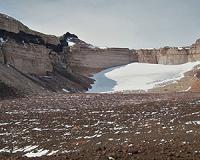 |
London (UPI) Nov 23, 2010 Common Earth bacteria could, in theory, survive in a dormant state in the harsh conditions on Mars for more than a million years, U.K. researchers say. Scientists as University College London froze some Deinococcus radiodurans bacteria to minus 110 degrees Fahrenheit, the average temperature at Mars' mid-latitudes, then exposed it to Gamma radiation at a level it would receive under 11 inches of martian soil, NewScientist.com reported Tuesday. The researchers estimate the bacteria could survive 1.2 million years under these conditions. "The more we learn about Earth life, the more likely it appears that it could survive in other parts of the solar system," Cassie Conley of NASA says. Conley, who minimizes the risk of NASA missions contaminating other worlds with microbes, says the agency's policy on planetary protection already takes into account that some microbes are amazingly radiation resistant. "The policy is that we won't contaminate other planets or moons, because just one colonizing event could screw up our ability to study indigenous life forever," she told New Scientist.
Share This Article With Planet Earth
Related Links Mars News and Information at MarsDaily.com Lunar Dreams and more
 Breaking The Ice In Antarctica
Breaking The Ice In AntarcticaMoffett Field CA (SPX) Nov 16, 2010 Over the course of the past decade, NASA spacecraft have identified several sites on Mars where conditions capable of supporting life existed in the past. One of the most promising of these sites, and a good candidate for a follow-up mission designed explicitly to look for signs of life, is the shallow subsurface at the Phoenix landing site in the arctic northern plains of Mars. Indeed, th ... read more |
|
| The content herein, unless otherwise known to be public domain, are Copyright 1995-2010 - SpaceDaily. AFP and UPI Wire Stories are copyright Agence France-Presse and United Press International. ESA Portal Reports are copyright European Space Agency. All NASA sourced material is public domain. Additional copyrights may apply in whole or part to other bona fide parties. Advertising does not imply endorsement,agreement or approval of any opinions, statements or information provided by SpaceDaily on any Web page published or hosted by SpaceDaily. Privacy Statement |